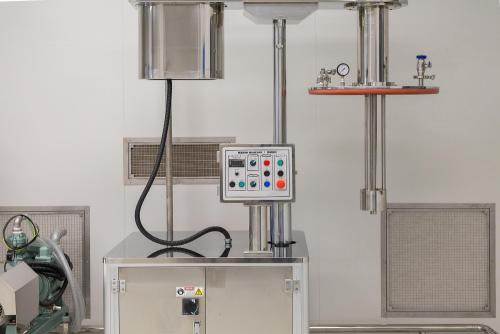The Ideal Flooring for Laboratory Environments
Laboratories or Labs, in short, are active places that serve as centers for innovation and scientific research. It is crucial to remember how important the correct flooring is in these types of settings. The selection of ideal laboratory flooring solutions is essential to maintaining the overall productivity, safety, and use of these areas. The issues, choices, and best practices of laboratory flooring are examined in this article.
What Challenges do You Have to Face?
A unique set of challenges that laboratories face necessitates careful thought when choosing flooring solutions. Labs are subject to rigorous requirements and the laboratory flooring solutions you are going to choose for these spaces must be chemical resistant and can provide protection against spills & leaks. It must also have the properties like slip resistance, static control, and fire resistance.
Furthermore, heavy machinery, continuous foot traffic, and potential impacts from fallen objects are all demands placed on laboratory flooring. Adherence to strict regulatory requirements is a non-negotiable in the laboratory industry. You must carefully select the appropriate flooring material after acknowledging these unique requirements.
What Options Do You Have for Your Lab Settings?
Epoxy and Resin-Based Flooring
Flooring systems made of epoxy and resin are well known for their sturdiness and resistance to chemicals. They provide flawless, stain- and abrasion-resistant surfaces that are seamless and smooth. Particularly epoxy flooring has a high-gloss surface that improves brightness and visibility. Resin-based solutions can be customized to fulfil specific needs, including antimicrobial protection or anti-static qualities, and provide comparable benefits. These systems provide a dependable and flexible option for use in scientific settings.
Static-Control Flooring
Static-control flooring is necessary in laboratories that use sensitive electronic equipment in order to prevent the accumulation and release of static energy. These flooring solutions offer protection against electrostatic discharge (ESD) and are available in a variety of materials, such as vinyl, rubber, or epoxy. By properly grounding or dissipating static charges, static-control flooring lowers the possibility of damaging delicate equipment or experiments.
Conductive and Dissipative Flooring
Higher conductivity flooring is required in laboratories that work with flammable or explosive compounds. In order to properly dissipate static charges and reduce the possibility of sparks igniting dangerous materials, conductive flooring lowers the electrical resistance route. Dissipative flooring has an intermediate level of electrical resistance and allows for regulated static charge dissipation. These solutions offer further defence against hazards associated with static electricity, guaranteeing the security and integrity of delicate procedures and materials.
Chemical-Resistant Flooring
Most of the time these labs handle the corrosive chemicals and reagents. In order to avoid deterioration, discoloration, or harm, flooring materials need to demonstrate a strong resistance to these chemicals. Chemical-resistant flooring materials, such as epoxy or Ecotile, create a protective barrier against corrosive agents and make sure the flooring is durable.
Non-Slip and Textured Flooring
Safety is the first priority in laboratories. Consequently, non-slip textured flooring is necessary to prevent accidents brought on by slips and falls. Specialized laboratory flooring solutions, such as E500 7 mm Raised Disc tiles, are offered by businesses like Smart Flooring. These tiles offer the ideal amount of traction, which increases stability and grip and reduces the risk of falls.
Special Flooring for Equipment Rooms
Laboratories that hold expensive and fragile equipment need to have their instrumentation and equipment rooms protected from vibrations and impacts. In these regions, you can use floating floors which are supported by a foam layer or spring are frequently used to improve vibration isolation and shock absorption.
To sum up, laboratory flooring is essential to maintaining productivity, functionality, and safety in these fast-paced settings. You can choose your laboratory flooring solutions just by going through this article. Choose carefully, bearing in mind the unique requirements of your lab.




Comments